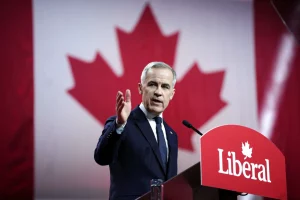The Labour party's manifesto for the 2024 election includes important pledges and policies from Keir Starmer's leadership.
Labour has shared their plans for the nation's future.

In a historic moment, Keir Starmer proudly launched the Labour manifesto at a highly-anticipated event in Manchester. As the leader of the Labour Party, Starmer has been working tirelessly towards this moment and it has finally paid off. With an astonishing victory of 362 seats, Labour has emerged as the winner of the 2024 General Election, marking their return to power after 14 years.
In the weeks leading up to the election, Starmer and his team had been teasing the public with glimpses of their plans for the country. At the manifesto launch, they finally revealed their comprehensive agenda, covering crucial issues such as immigration, the economy, the NHS, and employment rates.
Their campaign had gained momentum since May, when they unveiled their six main priorities to the public. These included a freeze on the three major taxes, a significant investment of £1.3 billion into the NHS, and the establishment of a Border Security Command to tackle criminal gangs operating in the English Channel.
During the launch event in Manchester, Starmer passionately declared, "The choice at this election is another five years of chaos under the Conservatives, or change with Labour. It's time to stop the chaos, turn the page, and start rebuilding Britain." With this powerful message, he urged the people to vote for Labour and bring about a positive change in the country.
The Labour manifesto covers a wide range of issues, and here are some of the key points that were highlighted:
National security and immigration
As part of their plans to strengthen national security and immigration, Labour intends to hire more caseworkers to clear the backlog of asylum applications. They also plan to introduce "Martyn's Law," named after a victim of the 2017 Manchester Arena attack, to increase security measures at public events. Additionally, Labour aims to reduce net migration by implementing appropriate restrictions on visas and linking immigration policies with skills development for British workers.
Economy
Labour made a significant pledge to not increase the three major taxes - VAT, National Insurance, and income tax - in the next parliament. They also plan to appoint a Covid Corruption Commissioner to investigate and recover any public funds lost due to fraud during the pandemic. Furthermore, they aim to capitalize a new National Wealth Fund with £7.3 billion to invest in important sectors such as ports, car factories, and carbon capture.
Work
Labour has promised to provide opportunities for young adults aged 18 to 21, including access to training, apprenticeships, and employment support. They also plan to ban zero-hour contracts and introduce basic rights for workers such as parental leave, sick pay, and protection from unfair dismissal. Age bands for minimum wage will be removed to ensure that all adults receive a genuinely living wage. Moreover, Labour intends to introduce a landmark Race Equality Act to ensure equal pay for ethnic minorities and disabled individuals.
Transport
In terms of transportation, Labour's plans include fixing an additional one million potholes on English roads and accelerating the rollout of electric vehicle charge points. They also aim to reintroduce the phase-out date of 2030 for new cars with internal combustion engines. Labour plans to bring Britain's railways into public ownership and create a unified brand of Great British Railways. Additionally, they will grant more power to local leaders to control bus routes and timetables.
Environment
Labour has set ambitious goals for the environment, including quadrupling offshore wind, doubling onshore wind, and trebling solar power by 2030. They also plan to get the new Hinkley Point C nuclear power station up and running. In addition, Labour aims to ban new licenses for oil and gas exploration in the North Sea and put an end to fracking. They will also establish a new publicly owned power company, Great British Energy, to invest in clean power technologies and promote local energy production.
NHS
Labour has pledged to spend £1.3 billion on NHS reforms, which will be funded by closing a tax loophole for non-domiciled individuals. These reforms aim to reduce wait times for key medical procedures, with the goal of adding 40,000 more NHS operations, scans, and appointments every week. They also plan to double the number of CT and MRI scanners and recruit 700,000 more urgent dental appointments. Furthermore, Labour aims to recruit 8,500 more mental health staff within their first term in government. They also propose shifting resources towards primary care and community services, in line with their vision of a "Neighbourhood Health Service."
In conclusion, the Labour manifesto encompasses a comprehensive plan to bring about positive change in the country. With their strong focus on important issues such as national security, the economy, work, transport, environment, and the NHS, Labour aims to rebuild Britain and create a better future for all its citizens.










